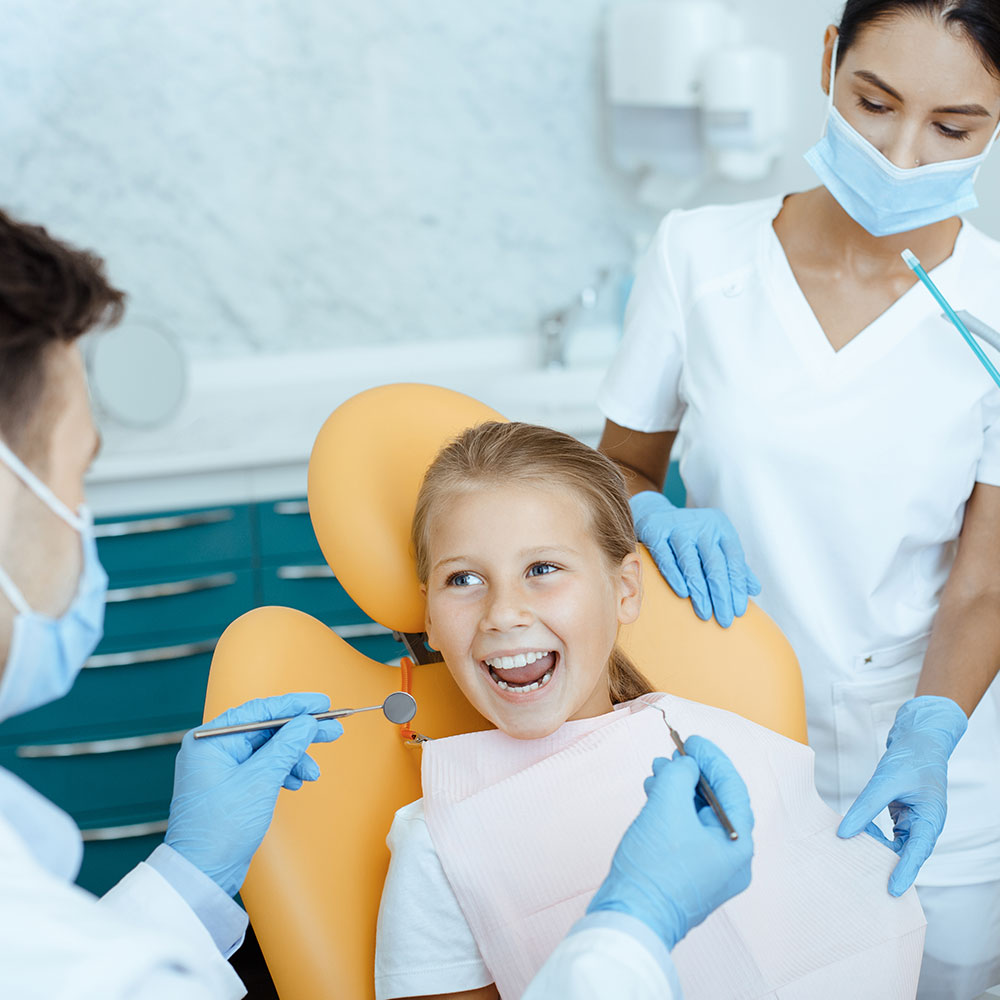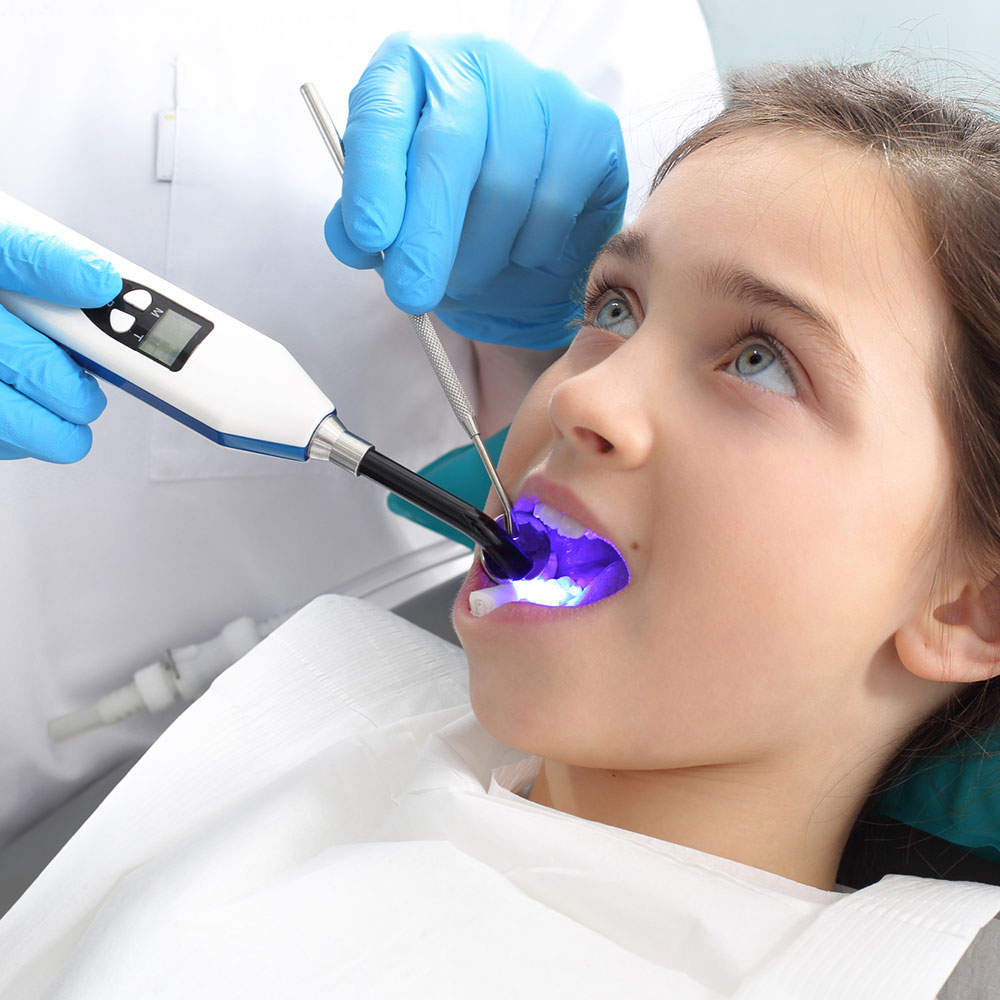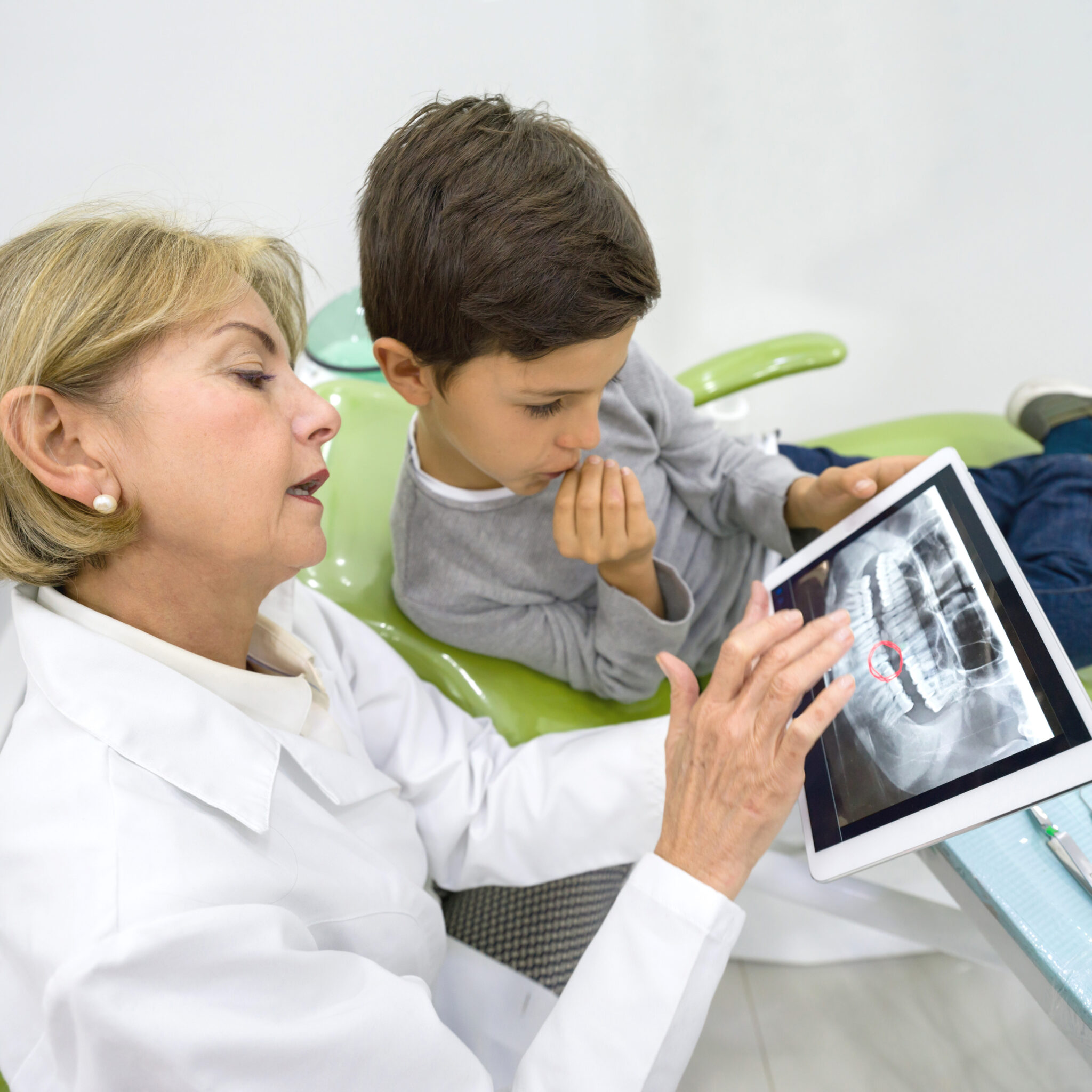Examination/Consultation
Cristina B. Georgescu, DDS and Eileen Dano Calamia, DDS will provide a thorough examination following a routine cleaning appointment. The doctor will strive to bond with your child to achieve a lasting relationship with him or her. The exam will include exploration of the child’s mouth and gums and a discussion regarding at-home dental hygiene. If the child’s teeth exhibit decay or other problems requiring further treatment, the dentist will discuss them with you at this time. If needed, an appointment will be set for a later date.


Dental Cleanings and Hygiene Instructions
According to the American Academy of Pediatrics, every child should see a dentist by the time they get their first tooth. The first dental visit should take place no later than the child’s first birthday. Helping your child get into the habit of regular dental visits early in life will set positive dental habits that will extend into adulthood. Routine dental cleanings and exams are necessary to help ensure that your child maintains a healthy mouth and good oral hygiene. Although care at home is also important, professional dental cleanings will help remove plaque build-up that can occur despite the best brushing and flossing methods.
During a routine check-up, the teeth of your child will be polished to remove any plaque build-up or tartar. Your child will be given a fun toothpaste flavor and allowed to watch a kid-friendly movie during the entire cleaning process. Our staff will also spend time going over the dietary needs of your child along with daily brushing and flossing routines. We will also give tips on how to properly brush and floss and what foods are best to eat.
Fluoride Treatments
Fluoride treatments at our office consist of a sticky varnish. This varnish adheres to the child’s teeth to prevent unnecessary ingestion. Fluoride treatments are generally applied at the end of each visit. They may be recommended more often if your child is especially prone to cavities. Your child is permitted to eat and drink immediately after a fluoride treatment, but you will need to avoid hard or sticky substances for four to six hours after the treatment. Fluoride is commonly used to keep children’s teeth healthy, strong and cavity-free. The dentist may discuss supplemental fluoride intake with you from sources such as fluoridated water, toothpaste and mouth-rinses.


BPA-Free Sealants
Smile Starters Pediatric Dentistry is strongly committed to prevention and desires to help all patients grow up cavity-free. We strongly recommend sealing your child’s teeth. The application of a sealant is one of the easiest and most effective methods available today to prevent tooth decay. Dental sealants provide a barrier to protect against cavities and can be applied to baby molars, adult premolars and posterior molars. These sealants should be applied as early as possible to help prevent the formation of cavities. Chewing surfaces are the most likely places to develop cavities because toothbrush bristles are often unable to reach into the grooves of the teeth. Sealants help preserve these vulnerable areas by protecting them from food contact and the formation of plaque. Dental sealants cost less than traditional cavity fillings and usually last for several years before needing a re-application.
Sports Mouth Guards
When your child begins playing sports such as hockey, football and basketball, you should invest in a high-quality sports mouth guard. Sports mouth guards are responsible for protecting your child’s adult teeth from fractures caused by trauma. While you can purchase over-the-counter sports mouth guards, a custom-made mouth guard will provide superior protection to your child’s mouth. Ask our office about a custom-made mouth guard for your child.


Digital X-rays
Taking dental x-rays or radiographs is essential for diagnosing dental disease and concerns.
These radiographs show teeth, bones and soft tissue to help dentists determine if there are caries or hidden dental problems such as bone loss that cannot be seen when looking into a mouth. Taking dental x-rays can also help catch dental disease early to prevent pain and expensive dental treatment.
Dental x-rays use very small amounts of radiation and exposure to this small amount of radiation is safe. When a patient receives a full mouth series of x-rays, this is equivalent to radiation exposure in everyday life.